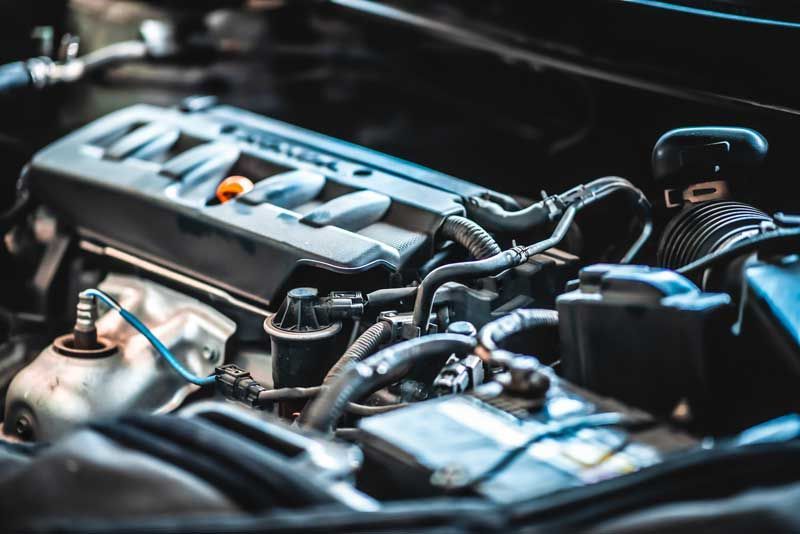Types of Extended Auto Warranties: Exploring Different Options
Some of the links on this page may link to our affiliates. Learn more about our affiliate policies.
Last Updated: March 18, 2023
In today's world, owning a vehicle is not only a convenience but often a necessity. As a car owner, you'll know that your vehicle is a significant investment, and protecting that investment is crucial. One of the best ways to safeguard your vehicle and avoid costly repair bills is by obtaining an extended auto warranty. These warranties provide peace of mind by covering unexpected repairs once the manufacturer's warranty expires, ensuring you're not left with a hefty repair bill.
This article aims to provide a comprehensive overview of the various types of extended auto warranties available in the market. By understanding the different options and their unique features, you'll be better equipped to decide when to choose the right warranty to suit your specific needs. So, buckle up and learn about extended auto warranties as we delve into the different types and help you navigate the world of vehicle protection in 2023.
Understanding the Basics of Extended Auto Warranties
Extended auto warranties, vehicle service contracts, or mechanical breakdown insurance are additional protection plans for your vehicle beyond the manufacturer's factory warranty coverage. While a factory warranty typically covers defects in materials and workmanship for a specified period or mileage, extended auto warranties kick in once the original warranty expires, offering extra protection against unexpected repair costs.
Choosing the right type of extended auto warranty for your vehicle and specific needs must be balanced. Since every car owner's situation is unique, finding a warranty that offers the right balance of coverage, cost, and convenience is crucial. By selecting the most suitable extended warranty, you can protect your vehicle in case of unforeseen breakdowns or expensive repairs without breaking the bank.
This section will delve into the basics of extended auto warranties, explaining how they work and differ from factory warranties. We'll also emphasize the importance of choosing the right warranty to match your specific requirements, so you can drive with confidence knowing your vehicle is protected.
Types of Extended Auto Warranties
When it comes to extended auto warranties, there are several types to choose from, each with its unique coverage and limitations. This section will explore the four main types of extended warranties: bumper-to-bumper, powertrain, stated component, and exclusionary warranties.
Bumper-to-Bumper Warranty:
A bumper-to-bumper extended warranty, or a comprehensive or full-coverage warranty, offers the most extensive protection for your vehicle. It covers almost all parts and systems, from the engine and transmission to the electronics and interior components. However, some limitations, such as wear-and-tear items like brake pads, wiper blades, and tires, may apply. Be sure to read the fine print to understand any coverage exclusions or deductibles that may apply.
Powertrain Warranty:
A powertrain warranty focuses on your vehicle's most vital and expensive components: the engine, transmission, and drivetrain. This type of warranty is often less costly than a bumper-to-bumper plan but offers less comprehensive coverage. Nevertheless, it's a popular choice for drivers who want to protect their vehicle's essential parts without spending too much on an extended warranty.
Stated Component Warranty:
As the name suggests, a stated component warranty covers only specified parts and systems of your vehicle. The coverage can vary significantly between different warranty providers and plans, so carefully reviewing the list of covered components is essential. This type of warranty offers a middle ground between the extensive coverage of a bumper-to-bumper warranty and the more limited coverage of a powertrain warranty, often at a lower cost.
Exclusionary Warranty:
An exclusionary warranty is similar to a bumper-to-bumper warranty in terms of coverage, but instead of listing the covered components, it provides a list of excluded items. This means that everything not mentioned in the exclusions list is covered. An exclusionary warranty can offer extensive coverage like a bumper-to-bumper warranty but may have different limitations and exclusions, so it's crucial to read the fine print carefully.
By understanding the various types of extended auto warranties, you'll be better equipped to decide when selecting the best coverage for your vehicle and specific needs.
Factors That Influence the Type of Extended Auto Warranty
Several factors come into play when considering an extended auto warranty for your vehicle. These factors can impact different warranty types' availability, coverage, and cost. This section will discuss four primary factors: vehicle age, vehicle mileage, vehicle brand and model, and vehicle usage.
Vehicle Age:
The age of your vehicle can significantly impact the extended warranty options available to you. Older vehicles are more likely to have issues, so warranty providers may charge higher premiums or offer limited coverage options. Some providers may even refuse coverage for vehicles beyond a certain age. Therefore, comparing different warranty options and understanding how your vehicle's age might affect coverage and pricing is essential.
Vehicle Mileage:
Mileage is another crucial factor when it comes to extended auto warranties. As a vehicle's mileage increases, so does the likelihood of mechanical or electrical issues. As a result, warranty providers may offer different coverage options or charge higher premiums for high-mileage vehicles. Some providers may also have mileage limits, beyond which they won't offer coverage.
Vehicle Brand and Model:
Your vehicle's brand and model can also influence your extended warranty options. Some manufacturers have a reputation for producing more reliable vehicles, while others might be known for specific issues or higher maintenance costs. Warranty providers may tailor their coverage options to cater to specific brands or models' unique features or common problems. Researching your vehicle's reliability and understanding common issues can help you make an informed decision when selecting a warranty plan.
Vehicle Usage:
Using your vehicle can also impact your choice of extended auto warranty. Factors such as daily driving habits, long trips, or off-roading can affect your vehicle's wear and tear and the likelihood of encountering issues. For example, if you frequently drive in harsh conditions or use your vehicle for heavy-duty tasks, consider a more comprehensive warranty that covers a wide range of components. Conversely, a more basic warranty plan may suffice if your vehicle usage is relatively light.
Considering these factors when shopping for an
extended auto warranty will help you find the best coverage for your needs and ensure you're well-protected against unexpected repair costs.
Choosing the Right Type of Extended Auto Warranty
Selecting the best-extended auto warranty for your vehicle is a crucial decision. In this section, we'll guide you through choosing the right warranty by considering four essential aspects: assessing your needs, comparing coverage, evaluating the provider, and weighing costs and benefits.
Assess Your Needs:
Before diving into the details of different warranty plans, take some time to evaluate your individual needs and preferences. Consider factors such as your budget, risk tolerance, vehicle usage, and the level of coverage you desire. For example, do you want comprehensive protection, or are you comfortable covering specific components? Understanding your unique requirements will help narrow the warranty options that best suit your needs.
Compare Coverage:
Once you have a clear idea of your needs, it's time to compare coverage levels offered by different warranty plans. Carefully review the terms and conditions of each plan to understand the differences between various warranty types. Consider the covered components, duration, mileage limits, and any exclusions. Comparing coverage levels will help you identify the plan that offers the right mix of protection and affordability for your situation.
Consider the Provider:
The warranty provider's reputation and track record are also essential factors. Look for a company with a strong history of customer satisfaction, prompt claims processing, and reliable customer service. You can check online reviews, testimonials, and industry ratings to gauge the provider's credibility. Choosing a reputable warranty provider will give you peace of mind knowing that your claims will be handled professionally and efficiently.
Evaluate Cost:
Finally, consider each warranty type's costs and benefits to determine the best value for your situation. While it might be tempting to opt for the cheapest plan, remember that the least expensive option may only sometimes provide the coverage you need. Consider factors such as deductible amounts, potential repair costs, and the warranty's duration when weighing costs and benefits. Balancing cost and coverage will help you select a warranty plan that offers the best protection without breaking the bank.
By following these steps, you'll be better equipped to choose the right extended auto warranty for your vehicle, ensuring that you're adequately protected against unexpected repair costs while getting the best value for your investment.
Additional Considerations When Choosing an Extended Auto Warranty
Apart from the factors discussed earlier, there are a few additional aspects to consider when selecting the best-extended auto warranty for your needs. This section will cover the importance of transferability, cancellation policies, deductibles, and repair networks.
Transferability: A transferable warranty can be a valuable asset when selling your vehicle. Many extended auto warranty providers offer the option to transfer the warranty to a new owner, which can enhance your car's resale value and appeal to potential buyers. Ensure you understand the provider's transfer process, any fees involved, and the conditions under which the warranty can be transferred.
Cancellation Policy: Awareness of the cancellation policy associated with your extended auto warranty is crucial. Providers may have different rules regarding when and under what circumstances you can cancel your warranty and any associated fees or penalties. Understanding the cancellation policy will allow you to change your mind or modify your coverage if your needs or circumstances change.
Deductibles: Deductibles play a significant role in extended auto warranties and can impact overall costs. A deductible is an amount you pay before the warranty coverage kicks in. Deductibles can vary depending on the provider and plan, ranging from zero to several hundred dollars. Generally, plans with lower deductibles have higher premiums and vice versa. Therefore, be sure to factor in the deductible amount when evaluating the cost-effectiveness of a warranty plan.
Repair Network: The convenience and accessibility of the warranty provider's repair network should also be considered when choosing an extended auto warranty. First, verify whether the provider has a wide network of authorized repair facilities, including dealerships and independent mechanics, and ensure they are conveniently located for your needs. A comprehensive repair network will make finding a reliable service center easier when you need repairs or maintenance, saving you time and hassle.
By considering these additional considerations, you'll be better equipped to make a well-informed decision when selecting an extended auto warranty, ensuring you receive the right coverage, convenience, and value for your investment.
Types of Extended Auto Warranties: Bottom Line
This comprehensive guide has provided valuable insights into the world of extended auto warranties. By understanding the different types of warranties available, such as bumper-to-bumper, powertrain, stated component, and exclusionary warranties, you'll be better equipped to choose the right coverage for your specific needs and preferences.
Throughout this article, we have discussed several important factors to consider when selecting an extended auto warranty. These factors include your vehicle's age, mileage, brand and model, and usage. Additionally, we covered essential aspects such as transferability, cancellation policies, deductibles, and repair networks, which can significantly impact your warranty experience.
Choosing the right extended auto warranty can offer peace of mind by protecting you from unexpected repair costs and ensuring your vehicle remains in good working condition. As you weigh your options, remember to carefully assess your needs, compare coverage levels, evaluate costs, and research reputable providers to make the most informed decision possible.
With thorough research and careful consideration, you can confidently select an extended auto warranty that offers the best protection and value for your investment, providing you with security and peace of mind.
The Car Data Review Methodology
Our expert review team is committed to providing honest and objective information. Based on consumer data, we identified the following rating categories and did extensive research to determine the top extended auto warranty providers.
- Affordable: Many factors influence the cost of a service, making it difficult to compare prices between providers. Our secret shopper team analyzes different vehicles, mileages, and warranty plans to give you this rating.
- Coverage - Each consumer has different needs. Every car warranty company must offer a variety of coverage options. We consider the number of plans available, terms limits, exclusions, and additional benefits.
- Industry Standing: Our team considers Better Business Bureau (BBB), ratings, availability, years in business, and other factors when determining this score.
- Customer Services: Trusted extended car warranty companies provide a level of customer care. We consider customer reviews, BBB complaints, and responsiveness to customer service.

Steven Dillon
Author
Steven is the founder and product tested for The Car Data, that has extensive knowledge in automotive industry. While most of his free time he participates in typical "car guy" activities, his passion for cars, data analytics, and tech, always has his looking for the next cool tool, software, trend, etc. to share with his audience on The Car Data or on his Instagram.

© 2023 The Car Data. All rights reserved.


